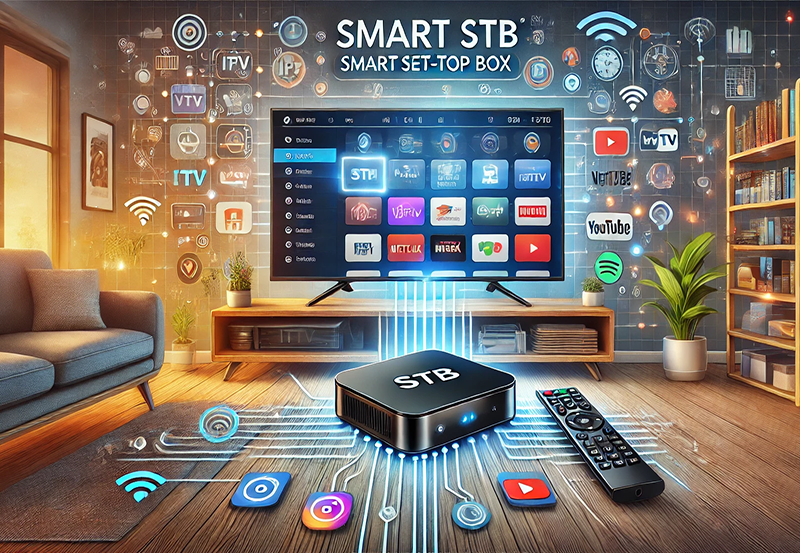In recent years, the world of digital entertainment has been revolutionized by Internet Protocol Television, or IPTV. As traditional cable struggles to keep up with modern consumer demands, IPTV has emerged as a versatile and cost-effective alternative. At the forefront of this movement are IPTV players, powerful software applications that allow users to stream content from various IPTV providers. With numerous options available, each offering unique features, choosing the right IPTV player can seem daunting. But fear not—this article delves into the best Linux IPTV players, highlighting Kodi and its competitors, to help you unlock the ultimate IPTV experience.
Understanding IPTV and Its Growing Popularity
Before we dive into the specifics of IPTV players, it’s crucial to understand what IPTV itself is and why it’s rapidly gaining traction worldwide. IPTV, or Internet Protocol Television, leverages internet connections to deliver live TV broadcasts and on-demand video content directly to viewers’ devices. Unlike traditional cable or satellite TV, IPTV doesn’t require physical connections beyond internet access. It provides flexibility and a plethora of viewing options that other services simply can’t match.
What makes IPTV particularly appealing is the personalized viewing experience it offers. Whether you’re seeking specific IPTV providers who cater to niche content or aiming to snag the best IPTV deals, there’s something for everyone. The potential to watch your favorite shows and movies anytime, anywhere, stands out as a major advantage for this technology, drawing millions of users worldwide.
Pro Tip:
Stream live matches in HD with IPTV for sports streaming and never miss a moment of the action.
Kodi: The Pioneer in IPTV Streaming
What is Kodi?
Kodi is an open-source media player famous for its versatility and ability to stream IPTV content efficiently. Originally launched as XBMC, Kodi has evolved to become one of the most popular Linux IPTV players available today. It’s renowned for supporting a wide array of add-ons, allowing users to customize their viewing experience to suit personal preferences.
The flexibility of Kodi makes it a favorite among tech-savvy users looking to optimize their IPTV experience. By integrating with multiple IPTV providers, Kodi provides access to an impressive library of content, often making it a one-stop solution for entertainment needs.
Features That Set Kodi Apart
- User-friendly interface with custom skin options
- Extensive add-on library supporting various streaming services
- Consistent updates and a strong user community
Kodi’s straightforward interface makes it accessible even to those new to IPTV. The platform is continually refined by a vibrant community of developers who are dedicated to preserving Kodi’s place at the top of the Linux IPTV player hierarchy.
Alternatives to Kodi: Other Top Linux IPTV Players
VLC Media Player
VLC, a household name, is widely recognized for its capability to handle all sorts of multimedia files. While primarily a media player, its functionality extends to streaming IPTV on Linux. Its simplicity and open-source nature akin to Kodi make it a formidable competitor.
Although VLC may lack the dedicated IPTV-focused features present in Kodi, its core ability to stream networks effectively makes it a popular option among those who prefer an all-in-one solution with minimal setup.
MythTV
MythTV combines traditional TV-recording capabilities with IPTV streaming, making it a versatile option for Linux users. Its powerful suite allows users to schedule recordings, manage playback, and stream live content effortlessly.
While MythTV might require more effort to set up compared to other players, its comprehensive features can provide a robust IPTV experience, particularly for those who appreciate the integration of traditional TV functionalities with modern streaming capabilities.
Comparing the Competition: What to Consider
Performance and Streaming Quality
When it comes to selecting an IPTV player, streaming quality is paramount. Users should prioritize a player that offers smooth playback with minimal buffering. Both Kodi and VLC excel in this regard, supported by efficient buffering technologies.
However, the quality of a stream often depends on the IPTV providers themselves and the quality of one’s internet connection. Thus, pairing the best IPTV deals with the right player can make a significant difference in the overall experience.
User Experience and Setup
The ease of installation and user interface are critical factors to consider. Kodi presents a relatively straightforward setup process, with innumerable customization options once installed. On the other hand, VLC’s no-frills approach makes it instantly operational but can limit customizability for avid users.
For a seamless start, users might gravitate towards options known for their simplicity and supported community. Evaluating the learning curve and the community support available is essential before committing to a player.
Unlocking the Ultimate IPTV Experience with the Right IPTV Provider
Choosing the Right IPTV Provider
The choice of an IPTV provider is as crucial as selecting the player itself. Leading IPTV providers offer diverse content packages that include both mainstream and niche programming. Assessing these offerings against your viewing habits and interests is vital to ensure satisfaction.
Additionally, evaluating the reliability of the provider, user reviews, and the quality of customer support can help distinguish reputable providers from lesser-known or unreliable counterparts.
Optimizing Your Setup for Peak Performance
To achieve the pinnacle of IPTV enjoyment, one’s setup must be optimized. This includes reliable internet connectivity, perhaps assessing bandwidth capabilities, and choosing compatible hardware that supports the IPTV player’s software requirements.
Configuring router settings, selecting appropriate resolutions, and possibly utilizing VPNs can further enhance streaming reliability and personal privacy, offering a tailored and smooth viewing experience.
The Final Verdict: Is Kodi King?
So, where does Kodi stand amidst its competitors? For many Linux enthusiasts, Kodi remains the gold standard of IPTV players due to its immense flexibility and robust community support. It’s not just a player; it’s a platform inviting customization and expansion.
Yet, likings differ. VLC appeals to those wanting straightforward playback without additional frills, whereas MythTV may attract viewers desiring DVR functionalities alongside IPTV streaming. The ultimate decision rests on personal needs and the allure of features offered by each player.
FAQ Section

What is the best Linux IPTV player?
While Kodi often tops the list for its comprehensive features and active community, alternatives like VLC and MythTV offer unique advantages depending on user preferences.
Can I use Kodi without any technical knowledge?
Yes, Kodi is designed to be user-friendly with a straightforward setup. With community support and numerous tutorials available, even beginners can navigate Kodi effortlessly.
Are there free IPTV providers available?
Yes, there are free IPTV providers, but they may offer a limited selection and lower quality compared to paid services. It’s important to ensure legality and security when selecting any provider.
How can I improve IPTV streaming quality?
Enhancing streaming quality involves choosing a reputed provider, ensuring stable internet connectivity, and optimizing the device and network settings for better performance.
Is VPN necessary for using IPTV?
A VPN is not mandatory but recommended for added privacy and to bypass potential geo-restrictions, providing benefits such as secure streaming and additional content access.
Do all IPTV players support live TV and on-demand content?
Most IPTV players, including Kodi, support both live TV and on-demand content. However, functionality may depend on the provider’s offerings and the player’s set capabilities.
How often should I update my IPTV player?
Regular updates are crucial as they include security patches and new features, improving stability and performance. Check for updates periodically or enable auto-updates if available.
Transitioning from Cable to FireStick: What You Need to Know





